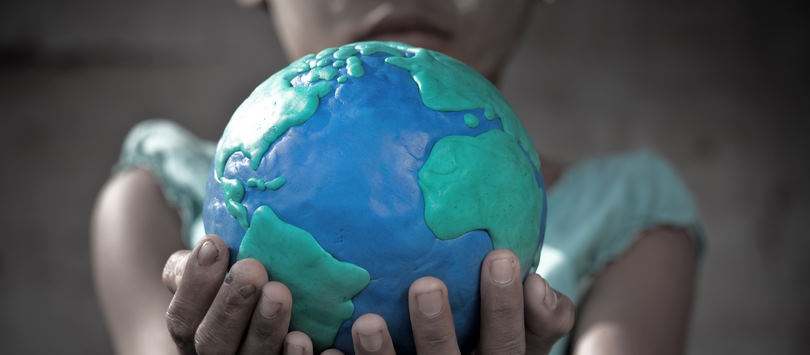Donations for Humanitarian Innovation: Empowering Inventors in Crisis Zones
Innovation has become a critical tool in addressing the complex challenges faced during humanitarian crises and disaster situations. From developing life-saving technologies to creating sustainable solutions for vulnerable populations, humanitarian innovation has the potential to greatly improve the effectiveness and impact of humanitarian aid. However, inventors and innovators in crisis zones often face significant challenges, including limited resources, lack of funding, regulatory barriers, and cultural obstacles. Donations play a crucial role in empowering these humanitarian innovators, providing them with the necessary resources and support to bring their ideas to life.
Challenges Faced by Inventors in Crisis Zones
Humanitarian crises and disaster situations often occur in areas with limited resources and infrastructure, making it challenging for inventors and innovators to develop and implement their ideas. In crisis-affected areas, access to basic necessities such as food, water, shelter, and electricity may be scarce, making it difficult for inventors to find the necessary resources to bring their innovations to life. Additionally, damaged or destroyed infrastructure, such as roads, power grids, and communication networks, can further impede the process of innovation, as inventors struggle with logistical challenges and lack of connectivity.

Another significant challenge faced by inventors in crisis zones is limited access to funding and support. Traditional funding sources may be scarce or inaccessible during humanitarian crises, as financial resources are often prioritized for immediate relief efforts. Local inventors may struggle to secure funding for their innovative ideas, which could require prototyping, testing, and scaling to become effective solutions. Without adequate funding and support, these inventors may face barriers in realizing their innovations and bringing them to the communities in need.
Legal and regulatory barriers also pose challenges to innovation in humanitarian contexts. Humanitarian crises often involve complex legal and regulatory environments, including issues related to intellectual property, import/export regulations, and safety standards. Navigating these legal and regulatory frameworks can be time-consuming, costly, and complex, creating hurdles for inventors trying to introduce their innovations in crisis zones. Additionally, the lack of clear guidelines and standards specific to humanitarian innovation may further impede the development and implementation of inventions in these contexts.
Cultural and social challenges are also significant obstacles faced by inventors in crisis zones. Humanitarian crises often involve diverse cultural and social dynamics, which can impact the acceptance and adoption of innovative solutions. Inventors may encounter resistance or skepticism from local communities due to cultural beliefs, social norms, or mistrust. Understanding and navigating these cultural and social dynamics requires sensitivity and adaptability, which can be challenging for inventors who may not have a deep understanding of the local context.
The Importance of Donations in Empowering Humanitarian Innovators
Donations play a crucial role in empowering inventors and innovators in crisis zones, providing them with the necessary resources and support to develop and implement their innovative solutions. Donations can come in various forms, including financial contributions, in-kind donations, and technical expertise, and can have a significant impact on driving humanitarian innovation.
One of the key impacts of donations on innovation is the provision of essential resources that may be lacking in crisis-affected areas. Financial donations can help local inventors overcome the funding challenges they face and provide them with the necessary capital to prototype, test, and scale their innovations. In-kind donations, such as equipment, materials, and technology, can also provide critical resources for inventors to develop and implement their solutions. Technical expertise in the form of mentoring, training, and support can also be invaluable in helping inventors navigate the complex challenges they may face in crisis zones.

Case studies of successful donation-based initiatives for humanitarian innovation illustrate the positive impact that donations can have. For example, organizations like Field Ready have leveraged donations to set up fabrication labs in crisis zones, equipping local inventors with the tools and resources to develop and produce essential items such as medical equipment, shelter materials, and water filters. This has led to rapid and effective responses to humanitarian crises, with local inventors providing life-saving solutions that are contextually relevant and culturally appropriate.
In addition to providing resources, donations also benefit local inventors by empowering them with a sense of ownership and agency. By receiving support from donors, inventors in crisis zones are empowered to take charge of their innovative ideas and contribute to the solutions for their own communities. Donations can boost the morale and motivation of local inventors, giving them the confidence and support needed to overcome challenges and pursue their innovations, despite the difficult circumstances they may face.
Furthermore, donations can foster collaborations and partnerships among inventors, local communities, and donors, creating a sustainable ecosystem for humanitarian innovation. Donors can provide mentorship, guidance, and networking opportunities, connecting inventors with relevant stakeholders and creating networks that can provide ongoing support. Examples of organizations and initiatives that facilitate donations for humanitarian innovation include the Humanitarian Makers, a global network of makers and innovators working on humanitarian challenges, and the Humanitarian Innovation Fund, which provides funding and support for innovative projects in crisis zones.







